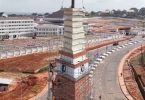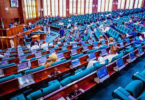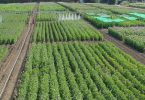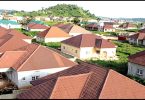By Ignatius Chukwu
Experts led by Mr Soji Adeleye, CEO of Alfe City Institution, have renewed calls for Nigeria to go by way of blue economy commission. Some dissenting voices have however said it is not the solution to the nation’s maritime drawbacks.
Adeleye made the new call in Port Harcourt, Rivers State capital, South-South Nigeria, when his group mounted a three-day conference with the topic, ‘Sustainable Blue Economy Ecosystem Conference’ held at the Hotel Presidential in the Garden City from Tuesday, November 26, 2024, to Thursday, November 28.
The CEO also made a case for a research institute in the blue economy.
Most persons have insisted that a Ministry option would subject the blue economy to bureaucratic bottlenecks as well as forcing big agencies to report to a minister whereas a commission would take fast decisions and report only to the President of the Federal Republic.
Adeleye stated in his paper: “A Nigerian Blue Economy Commission would be a regenerative agency with a power to help shape the Nigerian future economic landscape – articulate and supervise the technology, the finance that would be needed to build a new integrated economy.
“A Sustainable Nigerian Blue Economy can only thrive if run by a 21st century autonomous entity that could be proactive, responsive; a octopus-like Institution that is research-driven, financial and technology savvy that can advocate, proffer solutions, supervise and monitor development in the ocean, along the coast and all that derived from there.
“A Nigerian Blue Economy Commission should be responsible for supervision of compliance of actors in the Ecosystem, the enforcement of standard, the planning for future trends and outlook. Sustainability is at the core of Blue Economy. The Commission should supervise and uphold sustainability requirements and reflect this in practice as the success of the future Nigerian economy is dependent on a sustainable implementation of a Nigerian Blue Economy.”
Some experts from agencies including the Nigerian Inland Waterways Authority (NIWA), the Nigerian Shippers Council (NSC), and the Nigerian Port Authority (NPA) said what was needed was synergy of existing agencies.
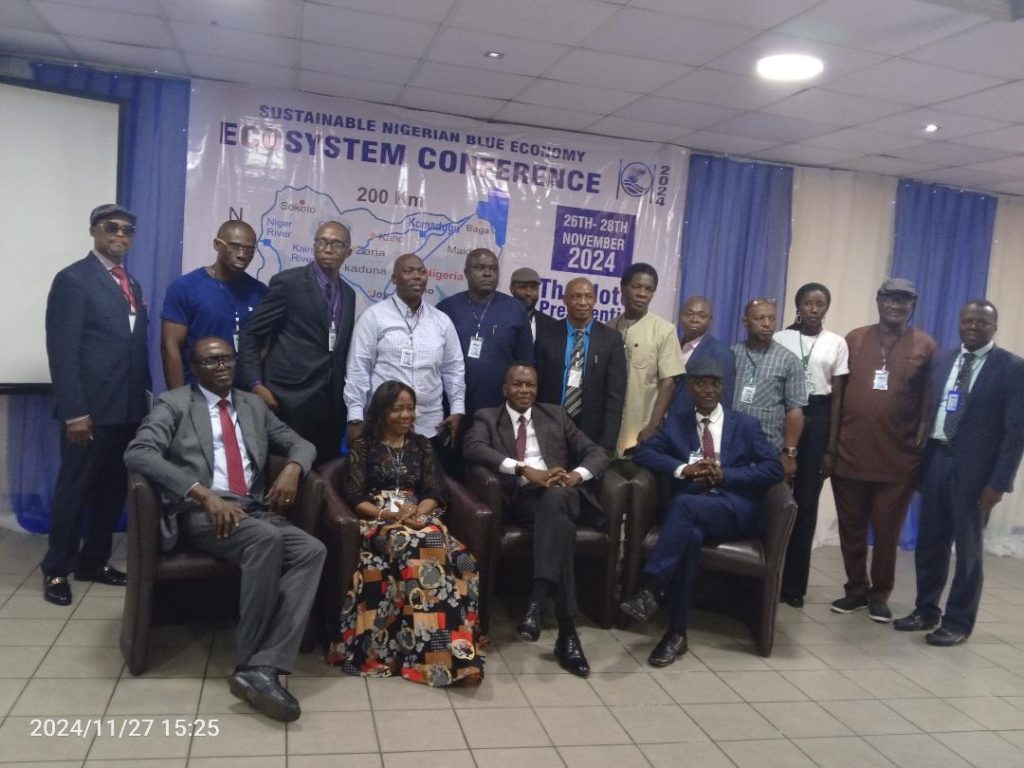
The expert said the blue economy needs researches to reveal many hidden treasures and ways of harnessing them. “Establishing world-class maritime research and development institution would be crucial to the long term goal of a sustainable Nigerian Blue Economy. It is important for the maritime industry as they help to determine the operational limits and safety of floating structures such as ships and platforms and support the development of innovative concepts for blue growth.
“One such institution is MARIN (Maritime Research Institute Netherlands) which is one of the leading institutes in the world for hydrodynamic research and maritime technology.
“The maritime industry has served as the catalyst for various forms of technological advances and development. The success of the maritime industry hinges on innovative solutions as well as the development of new technologies which would facilitate optimal function of shipping networks.”
Expand the laws – Angus Obinna Chukwuka Esq.
As hopes rise for Nigeria to hit $1.5trillion gross domestic product (GDP) from current $364bn through the blue economy in the coming years, the Federal Government has been advised to conduct a review and expansion of the nation’s body of maritime laws.
This is said to be necessary because of expected increase in disputes in the sector as the economy prepares to expand exponentially.
The advice was handed down in Port Harcourt, Rivers State capital, by the body of maritime lawyers known as Admiralty Lawyers Society led by the president, Angus Obinna Chukwuka.
The top maritime law expert was delivering the first technical paper at the ‘Sustainable Blue Economy Ecosystem Conference’ organized by Alfa City Institution held at the Hotel Presidential in the Garden City Wednesday, November 27, 2024.
Chukwuka who said the blue economy is not new because it was it has so far operated as maritime economy said the laws guiding the sector had been codified in Britain in the 19th century (1894) and brought down to Lagos Nigeria about 1956 but became a revenue court in 1973.
A major review he proposed is removing Maritime issues from the exclusive list in the 1999 constitution to recurrent list to allow state high courts to entertain some cases instead of taking all disputes to the federal high court in the first instance.
The expert who pointed to many problems militating against Nigeria’s emergence as a global blue economy despite many prospects said blue tourism is one the biggest potentials waiting for Nigeria.
Chukwuka said Nigeria is blessed with a coastline of approximately 853 Km long which stretches along the Atlantic Ocean and the Gulf of Guinea. “The total surface area of Nigeria’s inland waters is approximately 14.9m hectares which approximates to about 10 km of inland waterways. This makes Nigeria a truly maritime hub.”
He listed various sectors of the blue economy that could propel Nigeria to a global economic power if carefully harnessed under the blue economy platform.
Soji Adeleye, CEO of Alfe City Institution and convener of the seminar, said blue economy holds solution to all Nigeria’s economic woes. He said this is because the huge economy is capable of providing all the jobs Nigerian youth want and expand the GDP of Nigeria by over four times to $1.5trillion.
Adeleye, whose submission over the last four years are believed to have led to the setting up of the Ministry of Maritime and Blue Economy, said the institution was anxiously waiting to see the new FG policy on the Blue Economy announced by the Minister the previous day.
Highlight of day one of the workshop was a panel discussion that focused providing answers by stakeholders and presentation on the Lagos-Calabar Super Highway which was declared the single biggest and most important blue economy project.
$$



